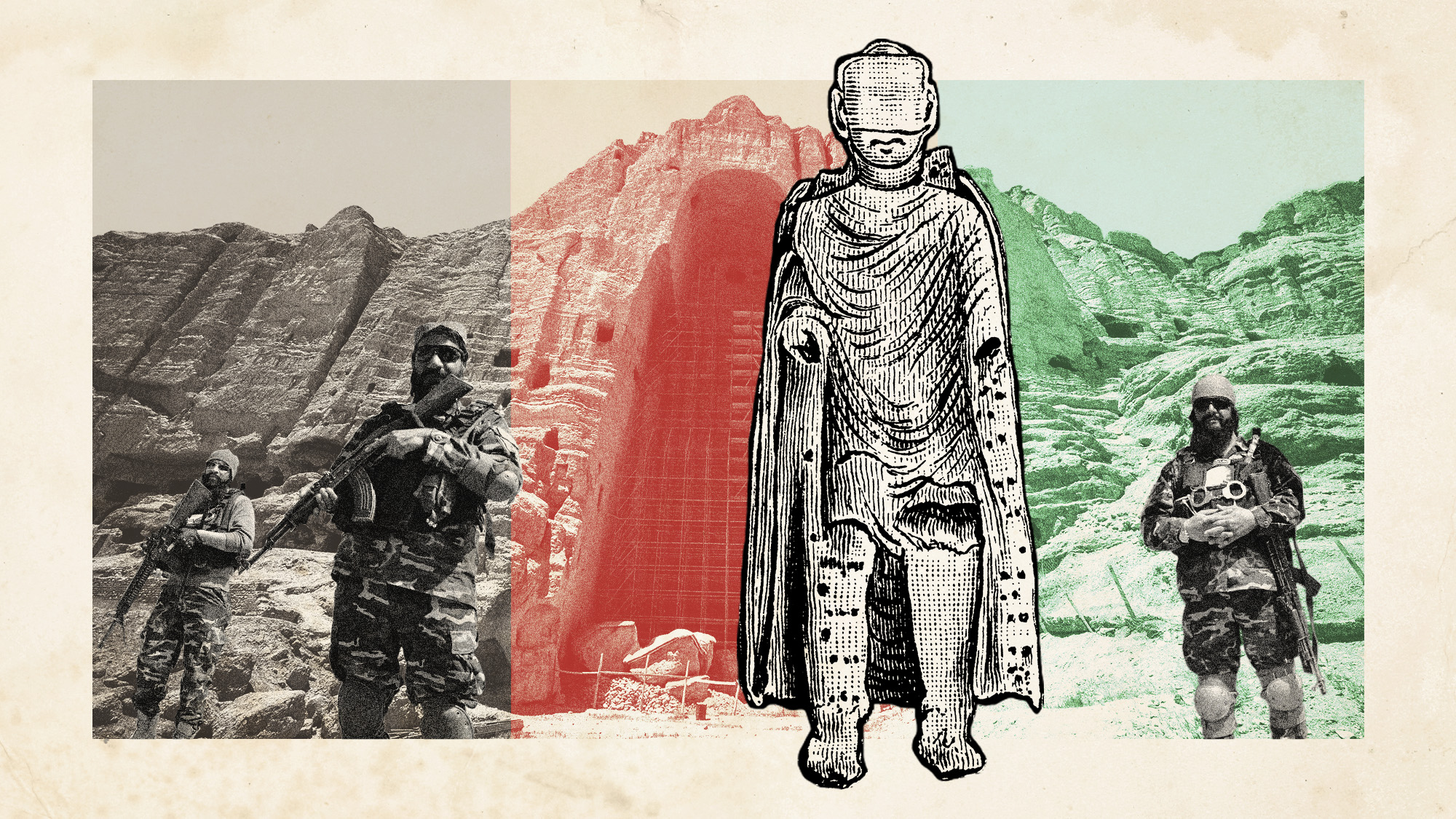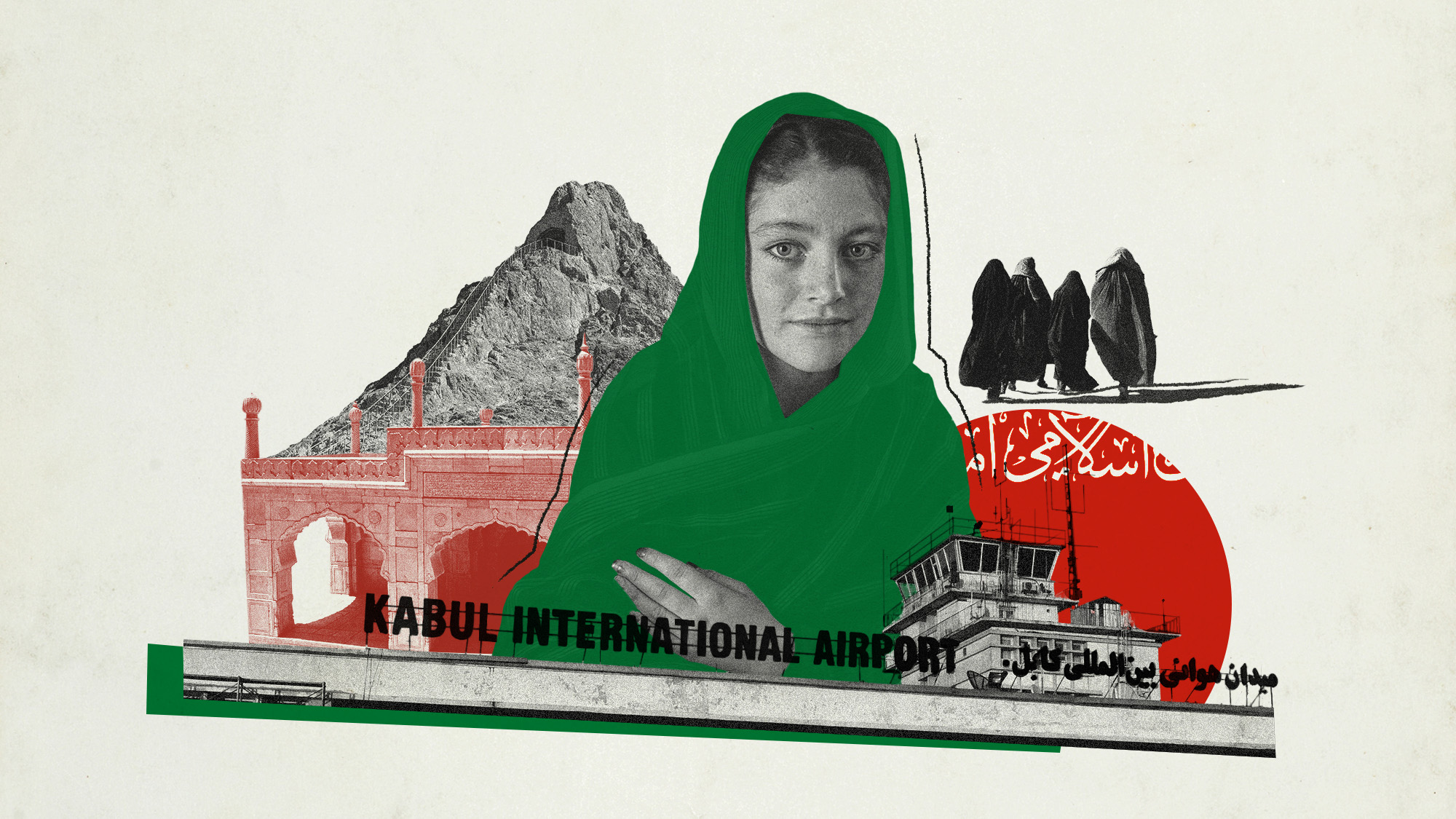Taliban's quest for tourists to see the wonders of Afghanistan
Troubled country wants to become a 'tourism powerhouse' – but how safe is it?

A free daily email with the biggest news stories of the day – and the best features from TheWeek.com
You are now subscribed
Your newsletter sign-up was successful
Holidaying in a country torn apart by warfare and ruled by fundamentalists won't be top of everyone's bucket list but the number of foreign tourists visiting Afghanistan rose 120% in 2023, reaching nearly 5,200.
Travel officials want Afghanistan to become a "tourism powerhouse", said AP, an ambition backed by the Taliban's top leaders, who assured The Times that "attention has been paid to peace and order in the areas where tourists go."
But why are visitors returning to Afghanistan and how safe is it?
The Week
Escape your echo chamber. Get the facts behind the news, plus analysis from multiple perspectives.

Sign up for The Week's Free Newsletters
From our morning news briefing to a weekly Good News Newsletter, get the best of The Week delivered directly to your inbox.
From our morning news briefing to a weekly Good News Newsletter, get the best of The Week delivered directly to your inbox.
'Bragging rights'
During the 1960s and 1970s, Afghanistan was part of the overland "hippy trail" route across Asia, with "hundreds of thousands of Western tourists" passing through, said Sky News, although as its "complicated modern history unfolded", the "steady stream of travellers stopped". But now, foreigners are visiting the country again, encouraged by the "sharp drop in violence", increased flight connections with hubs like Dubai, and the "bragging rights that come with vacationing in an unusual destination", said AP. Although the numbers aren't huge, they "never were" and there's still "a buzz around Afghan tourism".
The visitor revival is thanks to efforts by the nation's tourist officials, who are working hard to overcome numerous obstacles. There are problems with the road network, which is "half-paved or non-existent in some parts of the country", said the outlet, and the fact that airlines "largely avoid Afghan airspace".
"Decades of conflict" have made tourists in Afghanistan "extremely rare" in recent times, said Al Jazeera, and although most violence has now abated, visitors are "still confronted with extreme poverty, dilapidated cultural sites" and "scant hospitality infrastructure".
Tourists who visit will "holiday under the austere control of the Taliban authorities", without consular support, and they must also comply with a strict dress code and submit to searches at checkpoints.
A free daily email with the biggest news stories of the day – and the best features from TheWeek.com
The Taliban has an infamous track record of oppressing women and has even banned women from a national park, ruling that "going sightseeing is not a must for women". Untamed Borders, which runs mixed-gender tours to Afghanistan, told Sky News that although women travellers can "spend time with women in homes", there "are other things that women are not allowed to do and certain places they're not allowed to visit".
Stefanie Meier, a 53-year-old US citizen who spent a month travelling from Kabul to Kandahar via Bamiyan and Herat in the west, told Al Jazeera she did not face any issues as a woman on her own.
The country's only five-star hotel, the Serena, has reopened its women's spa and salon for foreign females after a closure of several months, but foreigners must show their passport to access services and women with "born in Afghanistan" on their ID are barred.
The biggest foreign-visitor market is China, thanks to its proximity and large population. Afghanistan and neighbouring Pakistan are both "attempting to convince Beijing" that their countries are "safe enough and stable enough to be part of, or remain part of, its global infrastructure embrace", said The Times.
'Unique experiences'
Although the UK Foreign Office currently advises against all travel to Afghanistan, highlighting its "volatile" security situation and an "ongoing and high threat of terrorist attacks", some "adventurous tourists aren't letting this stop them", said Sky News.
There are hoops to jump through. Just a "handful" of embassies around the world are able to issue visas and at all but one, you must apply in person, said Sky News. You will need specialist insurance, as regular providers do not cover travel to countries on the Foreign Office's red list.
"Unique sights, history and cultural experiences await" those willing to take the risk, said the broadcaster. Tourists can visit Bamiyan, an ancient route between India and China, the famous minaret of Jam, the cities of Herat, Kabul and Mazar-e-Sharif, and the site where two gigantic sixth-century Buddhas stood until the Taliban destroyed them in 2001.
Chas Newkey-Burden has been part of The Week Digital team for more than a decade and a journalist for 25 years, starting out on the irreverent football weekly 90 Minutes, before moving to lifestyle magazines Loaded and Attitude. He was a columnist for The Big Issue and landed a world exclusive with David Beckham that became the weekly magazine’s bestselling issue. He now writes regularly for The Guardian, The Telegraph, The Independent, Metro, FourFourTwo and the i new site. He is also the author of a number of non-fiction books.
-
 Switzerland could vote to cap its population
Switzerland could vote to cap its populationUnder the Radar Swiss People’s Party proposes referendum on radical anti-immigration measure to limit residents to 10 million
-
 Political cartoons for February 15
Political cartoons for February 15Cartoons Sunday's political cartoons include political ventriloquism, Europe in the middle, and more
-
 The broken water companies failing England and Wales
The broken water companies failing England and WalesExplainer With rising bills, deteriorating river health and a lack of investment, regulators face an uphill battle to stabilise the industry
-
 The Finest Hotel in Kabul: a ‘haunting’ history of modern Afghanistan
The Finest Hotel in Kabul: a ‘haunting’ history of modern AfghanistanThe Week Recommends Lyse Doucet’s sensitively written work traces over 50 years of Kabul’s ‘Inter-Con’ hotel
-
 The female-led all-women tours in Afghanistan
The female-led all-women tours in AfghanistanUnder The Radar Women are 'swapping cocktails in Ibiza' for visiting a 'terror hotspot'
-
 Bread & Roses: an 'extraordinarily courageous' documentary
Bread & Roses: an 'extraordinarily courageous' documentaryThe Week Recommends Sahra Mani's 'powerful' film examines the lives of three Afghan women under the Taliban
-
 Immigrant family in Washington welcomes Afghan refugees into their home
Immigrant family in Washington welcomes Afghan refugees into their homeSpeed Read
-
 John Oliver autopsies America's long, predictable Afghan failure. Bill Maher sympathizes with Biden's dilemma.
John Oliver autopsies America's long, predictable Afghan failure. Bill Maher sympathizes with Biden's dilemma.Speed Read
-
 Lone Survivor – reviews of 'authentic' Afghan war movie
Lone Survivor – reviews of 'authentic' Afghan war movieThe Week Recommends War porn or critique of the American military machine? Film about Navy Seals in Afghanistan triggers debate